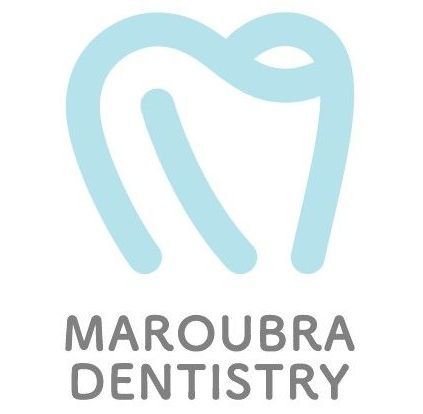Preventative Dentistry
About Preventative Dentistry
At Maroubra Dentistry, we believe prevention is the key to a healthy, confident smile. Our preventative dentistry services focus on maintaining your oral health and stopping potential issues before they arise. Through regular check-ups, professional cleanings, and personalised care plans, we help protect your teeth and gums from decay, gum disease, and other dental concerns. With a proactive approach, our team ensures your smile stays strong, healthy, and beautiful for years to come.
About Preventative Dentistry
At Maroubra Dentistry, we believe prevention is the key to a healthy, confident smile. Our preventative dentistry services focus on maintaining your oral health and stopping potential issues before they arise. Through regular check-ups, professional cleanings, and personalised care plans, we help protect your teeth and gums from decay, gum disease, and other dental concerns. With a proactive approach, our team ensures your smile stays strong, healthy, and beautiful for years to come.
Is the best care you can give your teeth - be it home care where you are diligent in brushing and flossing several times a day after meals or at the dentist, where you receive professional clean, scale, polish and fluoride. Your dentist can help prevent problems through early detection. Early decay can be reversed simply by improving your brushing, cleaning and flossing technique as well as a change of diet.
Regular Care
Benefits of Regular Care
Regular dental care offers numerous benefits for maintaining a healthy and confident smile. It helps prevent tooth decay, gum disease, and bad breath by removing plaque and tartar during professional cleanings.
Early detection of dental issues saves time and money by avoiding the need for more extensive treatments. Routine care also supports overall health, as good oral hygiene is linked to a reduced risk of conditions like heart disease and diabetes. Additionally, it preserves natural teeth, enhances appearance by keeping your smile bright, and boosts confidence, ensuring long-term oral health and well-being.
Mouth Guards
Are essential for all children playing contact sports where teeth can be injured. Ask you dentist about fitting a mouth guard for protection.
Night Guard or Occlusal Splint
Grinders or clenchers usually exhibit excessive wear on their teeth. This can result in acute tooth sensitivity, broken or fractured teeth or fillings, ugly, worn teeth and displacement of the jaw with severe muscle and joint pain. This is known as TMJ disorder. Ask your dentist about custom made night guards or occlusal splints. These are usually worn at night and they take the pressure off the jaw joints and teeth.
Benefits
Night guards, also known as occlusal splints, provide significant benefits for individuals who grind or clench their teeth (bruxism), especially during sleep. They act as a protective barrier, preventing enamel wear, cracked teeth, and damage to dental restorations. Night guards also help reduce jaw pain, tension headaches, and discomfort caused by excessive pressure on the temporomandibular joints (TMJ). Custom-fitted for comfort, they promote better sleep by alleviating the strain caused by clenching. Over time, a night guard can help preserve oral health, prevent costly dental repairs, and improve overall well-being.
Sensitivity
Excessive brushing can cause the enamel to be worn, thus exposing the dentine which gives the “nervy” sensation. Ask your dentist if it needs a filling or what can be placed on it to reduce the sensitivity and so reduce the stress on the tooth. Too much stress on the tooth can “kill” it.
Professional Advice
Regular dental care and following up with the treatment plan the dentist has drawn up for you at the consultation, will ensure good long term oral health. This will minimise not only the treatment but also save you a lot of bother in the long run.
Snoring & Sleep Apnoea
Snoring and sleep apnoea are common sleep disorders that can impact your overall health and quality of life. Snoring occurs when airflow is partially blocked during sleep, often caused by relaxed throat tissues. Sleep apnoea is a more serious condition where breathing repeatedly stops and starts during sleep, leading to disrupted rest and potential health risks such as heart disease, high blood pressure, and daytime fatigue.
What Your Dentist Will Do
Dentists play a vital role in managing sleep apnoea and snoring by providing oral appliance therapy. These custom-made devices reposition the jaw and tongue to keep the airway open during sleep, reducing snoring and preventing airway obstruction. They are a non-invasive, comfortable alternative to CPAP machines, suitable for patients with mild to moderate sleep apnoea or those seeking a quieter, portable solution.
Treatment
Treatment begins with a thorough evaluation of your oral and airway health. If an oral appliance is suitable, your dentist will take impressions of your teeth to create a custom-fitted device tailored to your needs. Once the appliance is ready, you’ll receive instructions on how to wear and care for it. Regular follow-ups are scheduled to ensure the device fits well and effectively reduces your symptoms.
Bad Breath and Halitosis
Bad breath, also known as halitosis, is a common and normal condition while persistent halitosis may indicate underlying dental or health issues. At Maroubra Dentistry, we specialise in identifying the root cause of bad breath and providing effective treatment solutions. Through thorough dental care, personalised advice, and targeted treatments, we help you achieve fresher breath and improved oral health, boosting your confidence every step of the way.
Bad Breath and Halitosis
Bad breath, also known as halitosis, is a common and normal condition while persistent halitosis may indicate underlying dental or health issues. At Maroubra Dentistry, we specialise in identifying the root cause of bad breath and providing effective treatment solutions. Through thorough dental care, personalised advice, and targeted treatments, we help you achieve fresher breath and improved oral health, boosting your confidence every step of the way.
Causes
Bad breath affects 50 to 60% of the population. There are many causes of bad breath but the main ones are decayed teeth and diseased gums. Gingivitis or inflammation of the gums need to be treated right away. If not, the gum becomes red and angry, swollen and would lose its attachment to the tooth, thus developing a pocket around the tooth. Food gets trapped within the pocket, causing more irritation to the gum and bacteria accumulates within the pocket. The bacteria causes breakdown of the food creating compounds called volatile sulphur compounds (VSC). It is this which is the source of bad breath.
Saliva is a strong antibacterial substance and in its absence, bacteria can grow. Dry mouth can be caused by sickness or is a side effect of certain medicines. Hence, it is important to treat it.
What can contribute to bad breath:
- Eating onions and garlic, cheeses could contribute to bad breath.
- Smoking, consumption of alcohol.
- In sinusitis and tonsillitis where there is accumulation of mucus, bacteria can accumulate in the mucus and produce VSC, thus causing bad breath.
- A weakened lower oesophageal sphincter between the stomach and the oesophagus can result in reflux of food back into the oesophagus, thus allowing gases to escape.
Management
Gum disease or periodontal disease causes bad breath. The removal of the subgingival calculus or tartar through curettage and root planning followed by irrigation with hydrogen peroxide would improve mouth odour immensely. However, this can only be done by the dentist as the offending source is beneath the gum line.
Tongue bacteria produce malodorous compounds. The back upper part of the tongue is relatively dry and usually poorly cleansed. Hence, it is continuously coated with a film of food debris and mucus which provides an ideal habitat for bacteria to grow.
Gently cleaning the tongue twice a day is very effective in removing the biofilm of bacteria. This can be achieved with the use of a specially designed tongue scraper or a toothbrush. Brushing a small amount of antibacterial mouth rinse or tongue gel onto the tongue surface will further inhibit bacterial action.
Other Ways to Help:
- Maintaining proper oral hygiene includes brushing and flossing and regular visits to the dentist. Flossing helps remove rotting food debris and dislodge the bacterial film formed at the gum line.
- Dentures must be properly cleaned with the toothbrush and soaked overnight in an antibacterial solution.
- Mouthwashes and mouth sprays which reduce the amount of plaque and bacteria in the mouth can also help reduce bad breath. However, they are only a temporary fix. This is because they do not remove the source of bad breath.
- Chewing sugarless gum stimulates saliva production which helps fight dryness in the mouth. The increased saliva production washes away the bacteria and thus helps reduce bad breath.




